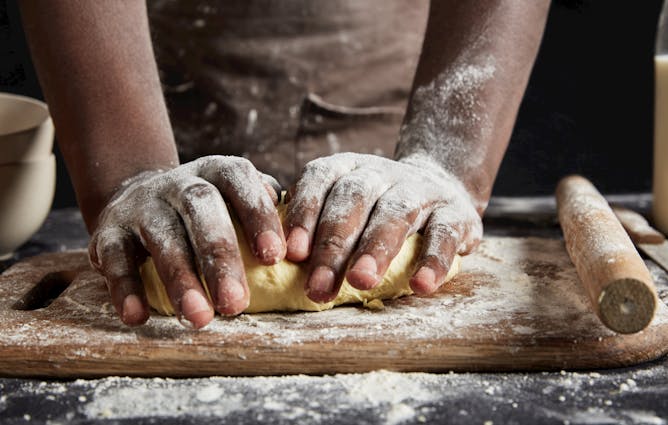|
How are social distancing and self-isolation going for everyone as we settle into the new normal during the coronavirus pandemic? If you’re like us here at The Conversation Canada, you’re probably spending a lot of time Googling the answers to questions like how long the coronavirus can live on various surfaces and what cleaning products will kill it.
And so Craig Janes of the University of Waterloo has compiled the answers to some of the most frequently asked questions about the coronavirus. This is one you’ll want to forward around to your friends and loved ones. It's among many stories we've had on our site in recent weeks aimed at giving our readers important news they can use during this frightening period.
Also in today’s edition:
Stay safe this week and every week, and we'll be back in your inbox in the days to come with more stories aimed at providing you with the information you need during the global pandemic.
|

Specimens await testing for COVID-19 at LifeLabs in Surrey, B.C.
THE CANADIAN PRESS/Darryl Dyck
Craig Janes, University of Waterloo
With offices shut down, people staying at home and hospitals bracing for an influx of patients, many people are unsure of what's safe and what's not.
|

Self-isolating may mean many Canadians will be forced to spend more time in the kitchen, a place that’s been foreign to most millennials, according to a new survey.
(Shutterstock)
Sylvain Charlebois, Dalhousie University
One positive thing coming out of pandemic-related self-isolation could be that people will spend more time in their kitchens, a place where fewer Canadians have ventured in recent years.
|

Christian pastor Shawn Bolz has recently said the U.S. economy would surge despite the conronavirus. He has said: ‘Even now several vaccines are coming out as well as a natural dying out of the virus itself.’ There is no known vaccine for COVID-19. He is pictured here at an event in April 2016.
(Bolz Ministries)
André Gagné, Concordia University
Some neo-charismatic religious leaders have downplayed the coronavirus.
|

A catastrophe bond that provides too little money too late — or none at all — is just financialization run amok.
(Shutterstock)
Dror Etzion, McGill University; Bernard Forgues, EM Lyon; Emmanuel Kypraios, National University of Ireland Maynooth
Insurance companies are paying out hefty claims due to COVID-19. Here's how catastrophe bonds come into play.
|

Online misinformation can, to some extent, be addressed. But what is of concern to health-care communicators are the private communication pathways.
(Shutterstock)
Jaigris Hodson, Royal Roads University; George Veletsianos, Royal Roads University; Shandell Houlden, Royal Roads University
Online news sources continue to grow as a primary source of information and misinformation. But private platforms like WhatsApp and Facebook Messenger are harder to monitor.
|
La Conversation Canada
|
-
Myriam Tahiri Hassani, Université du Québec à Montréal (UQAM)
Parents et ados doivent s’adapter au confinement. Dans ce contexte, les crises d'opposition risquent d'être plus fréquentes. Mais cette situation est aussi l'occasion de mieux comprendre leur origine.
|
|
COVID-19
|
-
Hector Chapa, Texas A&M University
As the COVID-19 pandemic spreads, pregnant women are facing new health risks and a health care system that's changing around them by the day.
|
|
Arts
|
-
Gavin Evans, Birkbeck, University of London
Moe Shaik fancies himself as an analyst who can read people well. And yet, he has a rather large blind spot for his leaders – until they fall out with him.
|
|
Education
|
-
Debra Costley, University of Nottingham
Clear strategies for communication and planning can be helpful for both autistic and neurotypical children in a time of upheaval.
|
|